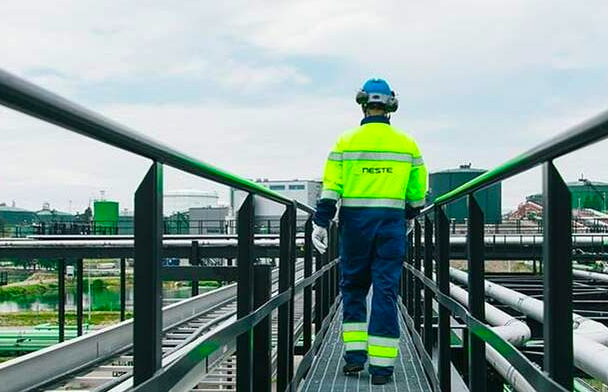SAF is a useful way for airlines to reduce emissions by replacing regular jet fuel – but the reality is, there’s not enough being manufactured and there remain challenges get the raw materials required. The IATA has called for more oil companies to get involved
The oil and gas sector and alternative fuel producers need to beef up efforts to produce greener aviation fuel to help airlines cut carbon emissions, the chief economist of global aviation industry body IATA said on Wednesday (December 6).
Aviation accounts for an estimated 2-3% of global carbon emissions and is not an easy industry to decarbonise compared with other forms of transport such as road travel.
Sustainable aviation fuel could reduce aviation emissions by up to 80% and is seen as the key green solution for the sector.
But it makes up only 0.2% of global jet fuel use, or about 500,000 metric tons of production, which is lower than the aviation industry expected, based on IATA figures. It also costs between three to five times more than traditional jet fuel.
Only 3% of global oil and gas capital budgets are invested into SAF production, while profit margins are much higher in the sector than in aviation, which is set to reach a 2.7% profit margin in 2024, IATA chief economist Marie Owens Thomsen told a media event in Geneva.
Speaking at ICAO only last month Owens Thomsen had said: “In all our scenarios and over that full time horizon, SAF plays the largest role in aviation’s decarbonization, coupled with other indispensable measures. According to our roadmaps, 80% of aviation’s fuel carbon intensity reduction by 2050 needs to be realized through SAF. However, virtually no SAF is available to our industry today.
“Merely 0.1% of airlines’ fuel demand was met by SAF in 2022 and we estimate that this will rise to 0.2% in 2023. Many of our members have themselves committed to significant SAF uptake, and this demand vastly exceeds the current and likely future production, unless governments can unleash this market’s potential.”





